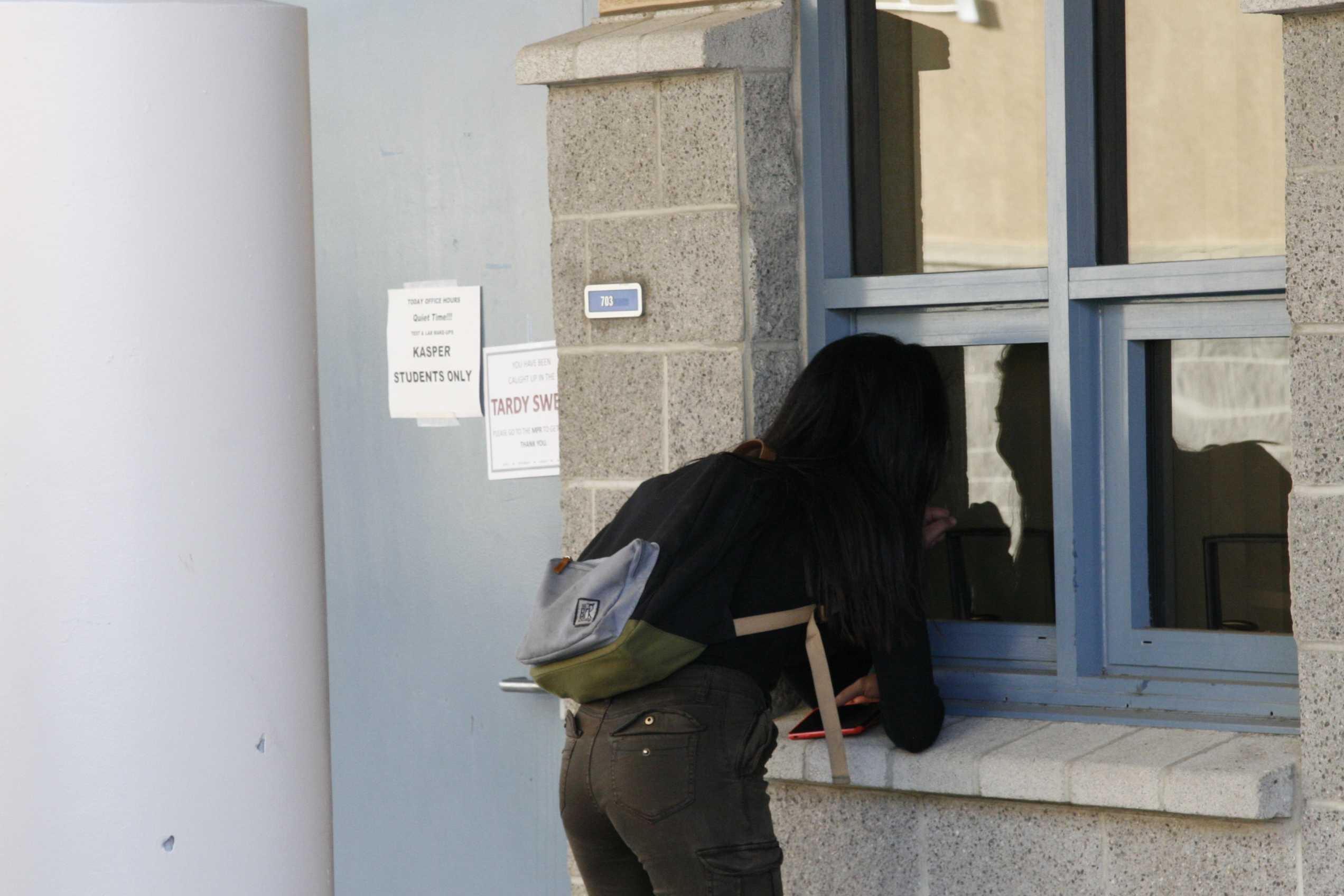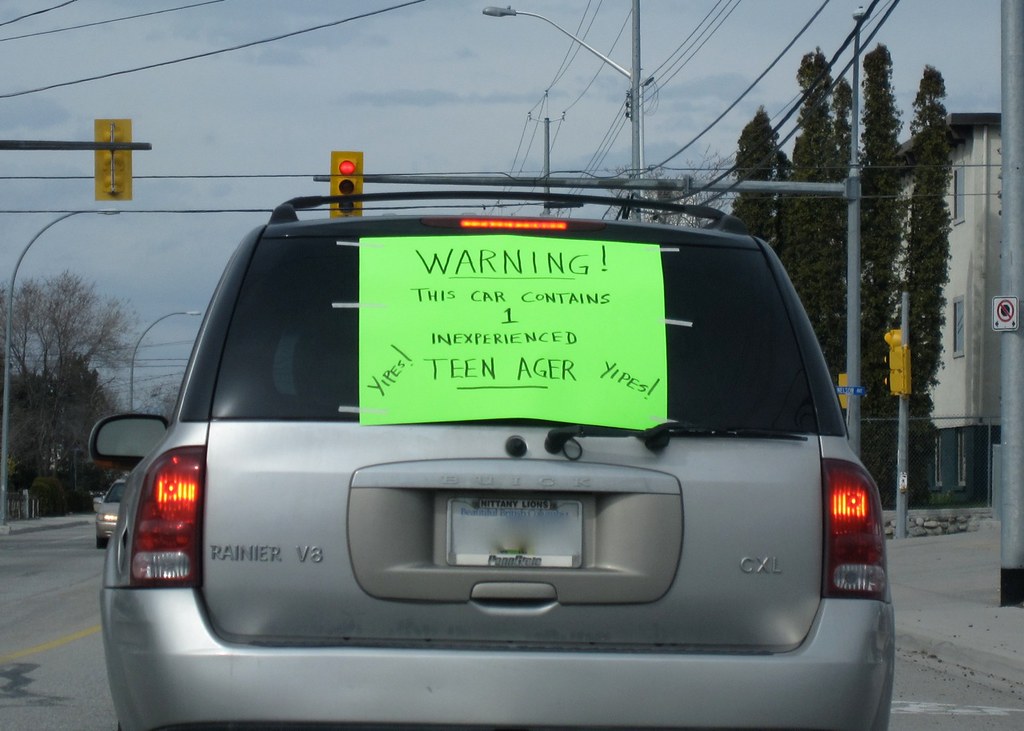
By BITA BEHPOOR
Staff Writer
Five minutes before 8:00, students crowd the walkways, sprinting across campus. Collisions between students are inevitable. Cars full of impatient parents and anxious students fill the parking lot, kids jumping out of their parent’s moving car when the clock reaches 7:59 in a final attempt to make it to class on time. This was the beginning of the Tardy Sweep week.
Starting from October 16th, tardy sweeps were put in place as a weeklong warning against tardiness. First period teachers locked their doors once the second bell rang to indicate the start of class, and students who were late, whether 30 seconds or 5 minutes late, were forced to walk to the MPR for processing. All students “swept up” in the tardy sweep were also required to attend an Attendance Meeting the week after the day they were tardy.
Even before its enforcement, even the mention of tardy sweeps caused an uproar among the University High School community. Responses have varied from angry reactions, complete with verbal attacks, to a more understanding stance. Even a Sword and Shield Facebook post about the tardy sweep received more than a hundred critical comments by students and alumni alike. Both sides of the argument have merit. Ultimately, however, the policy has more drawbacks than benefits to students.
One of the most common concerns is that many students have unavoidable reasons for being late. Why should students be held accountable for circumstances they cannot control? Whether it is relying on a parent to get them to school or various transportation problems, students should not be disciplined for an aspect of their life over which they have almost no control. The majority of the student population relies on their parent for transportation. Parents are not infallible; they can wake up late, lose their car keys or go through other troubles. Students cannot control their parents’ mistakes. Many parents have work hours that coincide with school hours. If their child is dependent on them to get to school, they may need to adapt to their parent’s work schedule and risk being late. Carpools are also an unknown factor, since most students have to adapt their morning schedule to the person driving them to school. Yet another significant factor is problems on the road, such as heavy traffic, car accidents, vehicle malfunctions or weather problems (in certain conditions). Students can control none of these situations. Is it fair to punish them for being late for factors out of their control?
With the tardy sweeps comes the class time missed by the student. During the tardy sweep, students late to class needed to make their way to the MPR, where they spent 15-20 minutes waiting to be processed. In those 15 to 20 minutes, valuable information may have been covered in class or a test or quiz could have been administered. Losing the opportunity to learn class material completely or to take an assessment under the same conditions as timely students can be exceedingly harmful to a student’s education. It is unreasonable to deny students the chance to utilize the full period for taking an exam or writing an essay.
The students who come to class after receiving the tardy slip also present a significant distraction. Before tardy sweeps were implemented, the students were allowed to enter the classroom even if they were late, making the entry of tardy students less disruptive as they trickled in one by one quietly at the beginning of class instead of entering the classroom in a noisy, disruptive fashion in the middle of class.
It is fair to say the consequences of tardy sweeps motivate students to make an extra effort to be early. The threat of missing important class time or an exam simply for being a few seconds late is an effective incentive for students. Tardy sweeps also prepare students for their independent adult life by instilling values of productivity and promptness.
Nevertheless, this is high school. Giving students the ultimatum to either be in class on time or arrive extremely late is detrimental to a student’s education, as well as their view on the importance of tardiness. According to research done on the psychology behind discipline (from sources such as Psychology Today and the Scientific American), discipline through extreme consequences does not change the tendency to engage in the behavior or action being disciplined. Instead, students are more likely to avoid the tardy sweep consequences through more extreme measures than change their behavior. Thus, the entire process is counterintuitive.
Tardy sweeps, in theory, seems like a great system. Hypothetically, it decreases tardies by providing motivation through consequences. However, placing students into categories of tardy and not tardy does not solve any of the problems the UHS administration has been trying to counter. Failing to consider why the student was late does not benefit the student; it only harms them. How does locking the student out of class, forcing them to lose class time, benefit their education? Instilling a fear of tardies in a student does not improve their life skills. In fact, it causes more stress during a time when students are already worrying about grades, extracurriculars, and preparing for future college applications. The tardy sweeps don’t solve these tardy dilemmas; they add to to the ever growing list of problems students encounter daily.
Tardy Sweep costs outweigh benefits
November 12, 2017
1
Donate to Sword & Shield
$180
$1000
Contributed
Our Goal
Your donation will support the student journalists of University High School. Your contribution will allow us to purchase equipment and cover our annual website hosting costs.
More to Discover













